Repelente de mosquitos natural – Aquí tiene los mejores repelentes caseros
Repelente de mosquitos natural – Aquí tiene los mejores repelentes caseros
En la temporada de verano, la presencia de mosquitos puede convertirse en un verdadero problema. Estos pequeños insectos son conocidos por sus molestas picaduras que pueden causar comezón e irritación en la piel. Además, algunos mosquitos pueden ser portadores de enfermedades peligrosas. Es por eso que contar con un buen repelente de mosquitos se vuelve fundamental. En este artículo, le proporcionaremos los mejores repelentes caseros, elaborados con ingredientes naturales y sin la necesidad de recurrir a productos químicos.
1. Aceite de eucalipto de limón: El aceite de eucalipto de limón es uno de los repelentes de mosquitos más efectivos. Para utilizarlo, simplemente mezcle una parte del aceite con diez partes de agua y colóquelo en un pulverizador. Rocíe esta mezcla sobre su ropa o en las áreas donde los mosquitos son más frecuentes. Recuerde que este repelente es de uso externo y no debe ser aplicado directamente sobre la piel.
2. Aceite de citronela: Otro repelente natural muy eficaz es el aceite de citronela. Este aceite repele a los mosquitos debido a su aroma fuerte y penetrante. Puede utilizarlo de la misma manera que el aceite de eucalipto de limón, mezclándolo con agua en un pulverizador. Rocíe la mezcla en el ambiente o sobre su ropa para mantener a los mosquitos alejados.
3. Vinagre de manzana: El vinagre de manzana no solo es útil en la cocina, también puede ser un repelente natural de mosquitos. Para utilizarlo, mezcle una parte de vinagre de manzana con una parte de agua y aplique la mezcla sobre la piel expuesta. Su olor fuerte e irritante para los mosquitos mantendrá a estos insectos a raya.
4. Hierbas aromáticas: Las hierbas aromáticas como la albahaca, el romero, la menta y el tomillo tienen propiedades repelentes de mosquitos. Puede utilizar estas hierbas en su jardín o en macetas cerca de las ventanas para mantener alejados a estos insectos. Además, también puede frotar las hojas de estas hierbas sobre su piel para obtener protección adicional.
Es importante recordar que estos repelentes caseros pueden resultar efectivos, pero su duración puede ser más limitada en comparación con los repelentes químicos. Por lo tanto, es necesario aplicarlos con mayor frecuencia para mantener a los mosquitos lejos.
Además, es importante tener en cuenta que cada persona puede reaccionar de manera diferente a los repelentes caseros, por lo que siempre se recomienda hacer una prueba en una pequeña área de la piel antes de aplicar el producto de manera generalizada.
En conclusión, contar con un repelente de mosquitos natural es una alternativa saludable y respetuosa con el medio ambiente para mantener a estos insectos alejados. Los aceites esenciales, el vinagre de manzana y las hierbas aromáticas son opciones caseras efectivas y seguras. Recuerde, sin embargo, que en caso de presencia de enfermedades transmitidas por mosquitos en su área, es importante consultar con un especialista y seguir las recomendaciones de las autoridades sanitarias. ¡Disfrute de un verano libre de mosquitos! Estos repelentes caseros son efectivos y seguros para mantener a los mosquitos alejados durante el verano. Es importante recordar que su duración puede ser más limitada en comparación con los repelentes químicos, por lo que se recomienda aplicarlos con mayor frecuencia. Siempre es recomendable hacer una prueba en una pequeña área de la piel antes de aplicar el producto de manera generalizada, ya que cada persona puede reaccionar de manera diferente a los repelentes caseros.
En conclusión, tener un repelente de mosquitos natural es una alternativa saludable y respetuosa con el medio ambiente. Los repelentes caseros mencionados, como el aceite de eucalipto de limón, el aceite de citronela, el vinagre de manzana y las hierbas aromáticas, son opciones efectivas y seguras. Sin embargo, si hay presencia de enfermedades transmitidas por mosquitos en su área, es recomendable consultar a un especialista y seguir las recomendaciones de las autoridades sanitarias. ¡Disfrute de un verano libre de mosquitos! Estos son los mejores repelentes caseros para mosquitos durante el verano. Sin embargo, es importante tener en cuenta que su duración puede ser más limitada en comparación con los repelentes químicos, por lo que se recomienda aplicarlos con mayor frecuencia. También es recomendable hacer una prueba en una pequeña área de la piel antes de aplicar el producto de manera generalizada, ya que cada persona puede reaccionar de manera diferente a los repelentes caseros.
En conclusión, contar con un repelente de mosquitos natural es una alternativa saludable y respetuosa con el medio ambiente. Los aceites esenciales, el vinagre de manzana y las hierbas aromáticas son opciones caseras efectivas y seguras. Sin embargo, si hay presencia de enfermedades transmitidas por mosquitos en su área, es recomendable consultar a un especialista y seguir las recomendaciones de las autoridades sanitarias. ¡Disfrute de un verano libre de mosquitos! Aquí se proporcionan los mejores repelentes caseros para mosquitos durante el verano. Estos repelentes son efectivos y seguros, pero es importante tener en cuenta que su duración puede ser más limitada en comparación con los repelentes químicos. Se recomienda aplicarlos con mayor frecuencia y siempre hacer una prueba en una pequeña área de la piel antes de aplicar el producto de manera generalizada, ya que cada persona puede reaccionar de manera diferente a los repelentes caseros.
En conclusión, contar con un repelente de mosquitos natural es una alternativa saludable y respetuosa con el medio ambiente. Los aceites esenciales, el vinagre de manzana y las hierbas aromáticas son opciones caseras efectivas y seguras. Sin embargo, si hay presencia de enfermedades transmitidas por mosquitos en su área, es recomendable consultar a un especialista y seguir las recomendaciones de las autoridades sanitarias. ¡Disfrute de un verano libre de mosquitos! Estos son los mejores repelentes caseros para mosquitos durante el verano. Los aceites esenciales, el vinagre de manzana y las hierbas aromáticas son opciones caseras efectivas y seguras. Sin embargo, es importante tener en cuenta que su duración puede ser más limitada en comparación con los repelentes químicos, por lo que se recomienda aplicarlos con mayor frecuencia. También se aconseja hacer una prueba en una pequeña área de la piel antes de aplicar el producto de manera generalizada, ya que cada persona puede reaccionar de manera diferente a los repelentes caseros.
En conclusión, contar con un repelente de mosquitos natural es una alternativa saludable y respetuosa con el medio ambiente. Los aceites esenciales, el vinagre de manzana y las hierbas aromáticas son opciones caseras efectivas y seguras. Sin embargo, si hay presencia de enfermedades transmitidas por mosquitos en su área, es recomendable consultar a un especialista y seguir las recomendaciones de las autoridades sanitarias. ¡Disfrute de un verano libre de mosquitos! En resumen, los mejores repelentes caseros para mosquitos durante el verano son el aceite de eucalipto de limón, el aceite de citronela, el vinagre de manzana y las hierbas aromáticas como la albahaca y el romero. Estos repelentes son efectivos y seguros, pero es importante recordar que su duración puede ser más limitada en comparación con los repelentes químicos. Se recomienda aplicarlos con mayor frecuencia y hacer una prueba en una pequeña área de la piel antes de aplicar el producto de manera generalizada, ya que cada persona puede reaccionar de manera diferente a los repelentes caseros. Además, si hay presencia de enfermedades transmitidas por mosquitos en su área, es recomendable consultar a un especialista y seguir las recomendaciones de las autoridades sanitarias. ¡Disfrute de un verano libre de mosquitos!

Ah, summer, the time for garden parties, swimming, fishing, camping, hiking, and all the joys that warm weather brings, spending time outdoors with family and friends. Unfortunately, with summer also comes the battle with mosquitoes. Depending on where you live, mosquitoes can be an occasional nuisance or a full-blown enemy that you’ve declared war against. The good news is that there are a number of safe and natural ways to keep these pesky creatures away from your home and garden, and most importantly, your skin.
Natural Mosquito Repellent Ideas and Tips
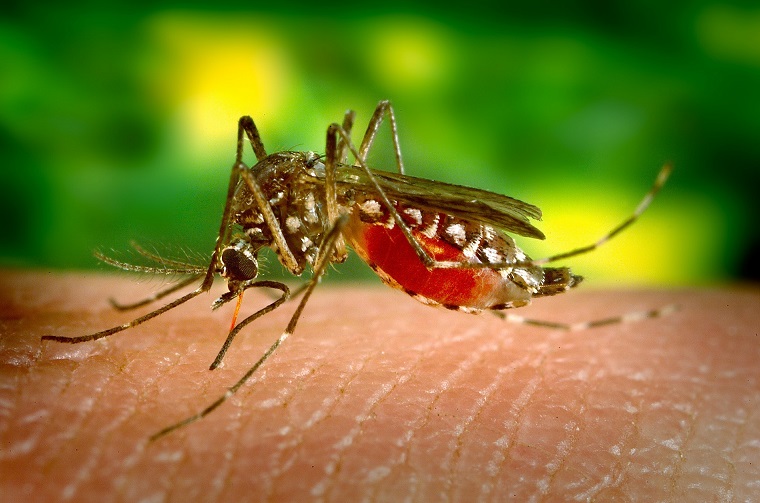
People are generally prone to mosquito bites due to a combination of scent, light, heat, and humidity. If you’re a mosquito magnet, you’re probably tired of having bites on your skin. Different species of mosquitoes, such as those that transmit malaria, prefer bacteria and sweat. Others are attracted to carbon dioxide and certain hand odors. Whichever species you encounter, you can protect yourself without having to use chemical mosquito repellents. The products sold in stores have the potential to cause health and environmental problems. You can choose to avoid using these products unless you’re visiting places that have a high risk of mosquito-borne diseases like Zika.
Homemade Mosquito Repellent Best Ideas
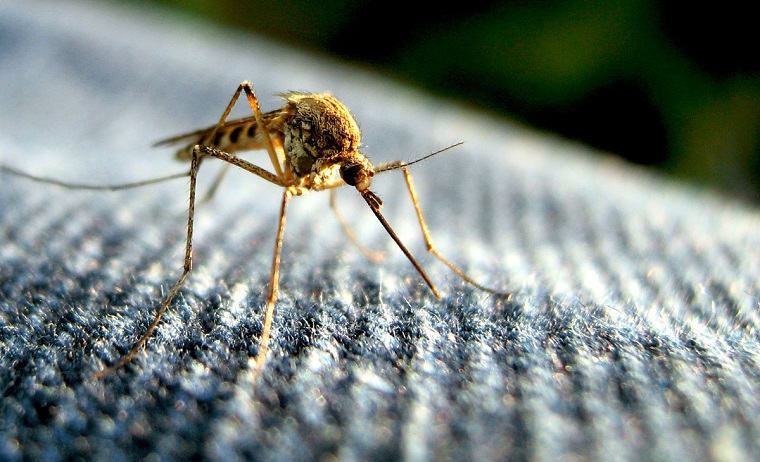
Chemical repellents are recommended for people at risk of mosquito bites carrying any disease. If you’re doing activities like hiking, hanging out in your backyard, or taking a trip to a campsite, natural repellents might be a better choice. This can be especially true for children, who are more sensitive. Keep reading to see which natural mosquito repellent works best.
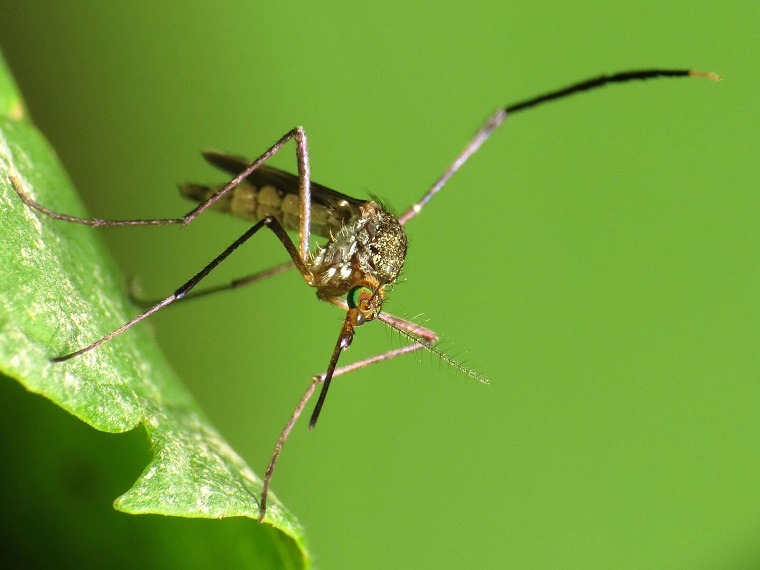
Mosquitoes Carry Diseases
Unfortunately, annoying bites are not the only things that make mosquitoes an unwelcome visitor. The over 3,000 species of mosquitoes are responsible for carrying some of humanity’s biggest diseases. Malaria is transmitted by the Anopheles mosquito and is reported to infect between 300 and 500 million people each year, causing over 600,000 deaths. The Culex mosquito carries the West Nile virus, filariasis, and encephalitis. The Aedes mosquito carries yellow fever and encephalitis.
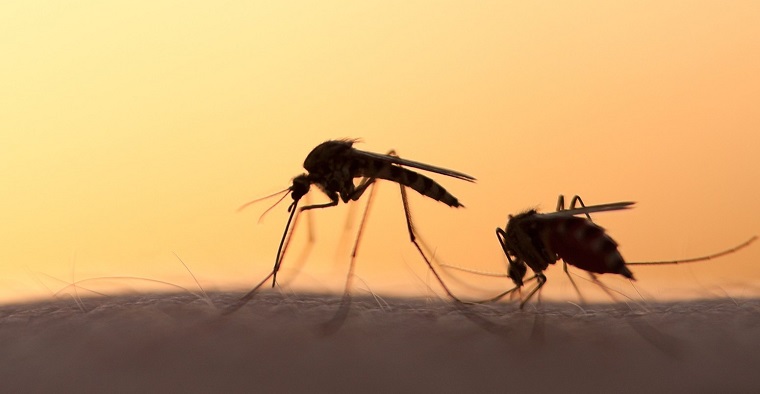
3 Factors That Make You More Attractive to Mosquitoes
Believe it or not, mosquitoes tend to be picky with their victims. Apparently, not everyone is equally tasty. In one study, it was found that mosquitoes are drawn to people with type O blood twice as often as people with type A blood. Mosquitoes locate their target by smelling carbon dioxide that is released when we breathe. It’s not surprising that people who exhale more carbon dioxide, larger people in general, are bitten more often than smaller people.
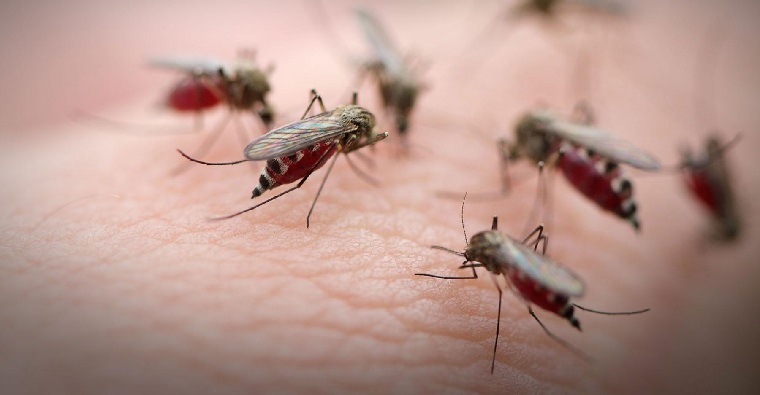
Mosquitoes also smell lactic acid, uric acid, ammonia, and other bodily substances to find their victims. When you exercise, lactic acid builds up and this can make you quite attractive to mosquitoes. Additionally, genetic factors can influence the amount of uric acid and other substances we emit, making some people tastier than others to mosquitoes.
 Did you know that mosquitoes have preferences when it comes to the bacteria on our skin? A study conducted in 2001 found that people with a higher abundance, but lower diversity, of bacteria on their skin were more attractive to mosquitoes.
Did you know that mosquitoes have preferences when it comes to the bacteria on our skin? A study conducted in 2001 found that people with a higher abundance, but lower diversity, of bacteria on their skin were more attractive to mosquitoes.

This is especially true, scientists say, if the bacteria is concentrated in a particular area. Ankles are a prime example because there are naturally more bacteria here than in other parts of the skin. How many times have you been bitten on the ankles by a mosquito?
Mosquito Repellent – Tips for the Best Natural Protection
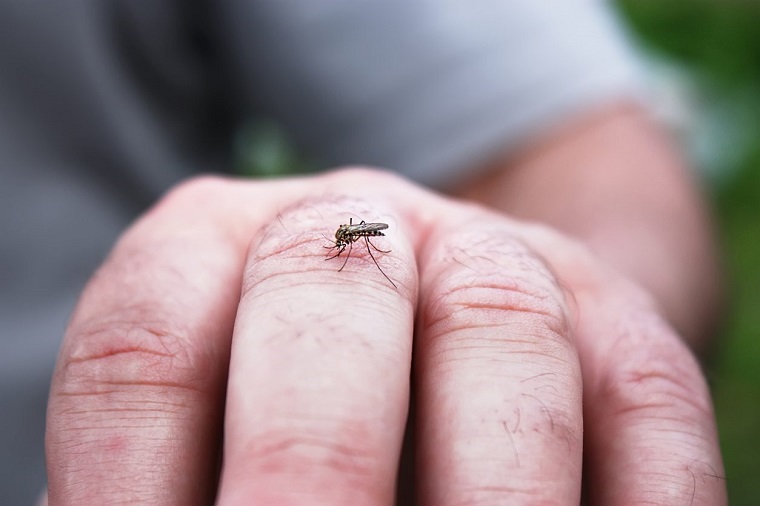
How to Keep Mosquitoes Away from Your Outdoor Resting Spaces
Mosquitoes are an inevitable part of the warm summer months, but that doesn’t have to mean the end of your summer fun. The good news is that there are several non-toxic ways to make your favorite spots in your garden and yard repellent to mosquitoes.
Plant herbs and flowers that repel mosquitoes and are the most beautiful mosquito repellent
One way to protect your outdoor gatherings from unwanted guests (mosquitoes, not your mother-in-law) is to surround your outdoor space with plants that mosquitoes don’t like. Not only will the plants add aesthetic value to your landscape, but they will also serve a dual function as a natural defense screen.

Here are some top options for natural mosquito repellent:
Rosemary – it is a perennial herb that will beautify any place in your garden. This plant contains aromatic essential oils that mosquitoes detest. Just make sure to buy the best variety for your area. Rosemary loves lots of sun, good drainage, and sandy soil. Rosemary grows slowly and doesn’t reach a considerable height. You can grow rosemary in a small area of your backyard but also in pots if you live in a very cold region.
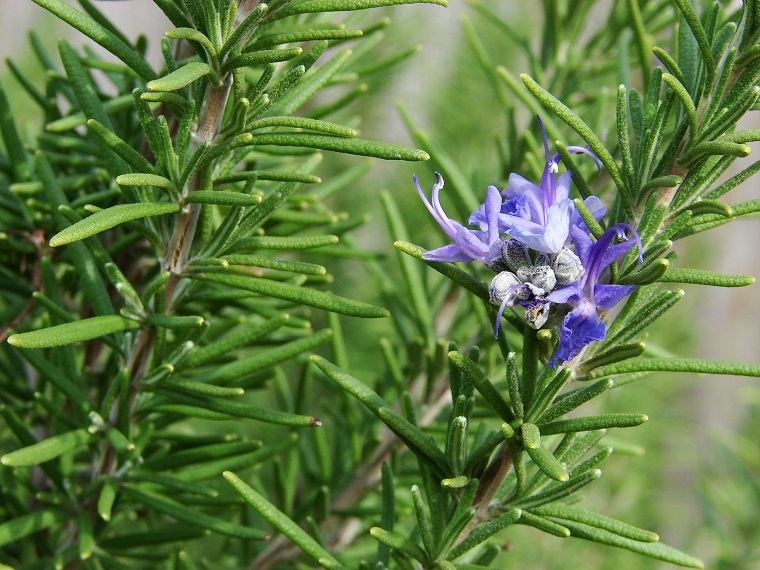
Any place surrounded by rosemary will be a well-protected spot where mosquitoes are not welcome. Rosemary is an herb that many of us are very familiar with, and its woody scent is exactly what keeps mosquitoes away. They can also be pruned into all sorts of shapes and sizes. While pests stay away, you can enjoy the aroma of the herb and also use it to season your food.
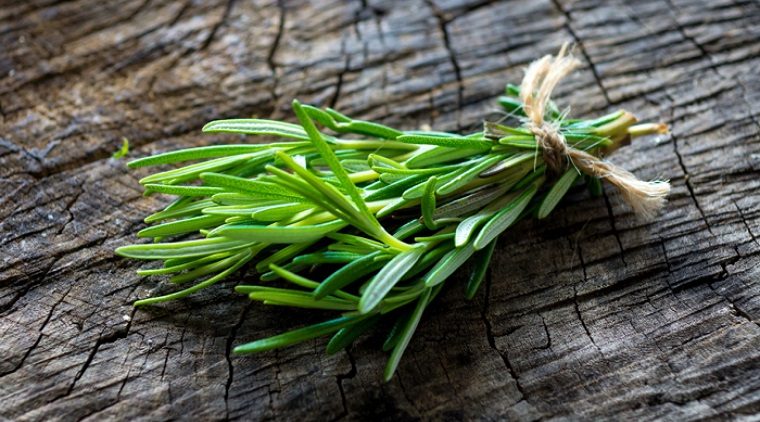
Lavender – is another highly aromatic herb that mosquitoes are not fond of. This member of the mint family has beautiful purple foliage from early summer to fall. Lavender is a great addition to any landscape and is especially suitable for borders or if you want an informal hedge. Lavender is a hardy perennial plant. Have you ever noticed that insects or even rabbits and other animals never ruin your lavender plant?
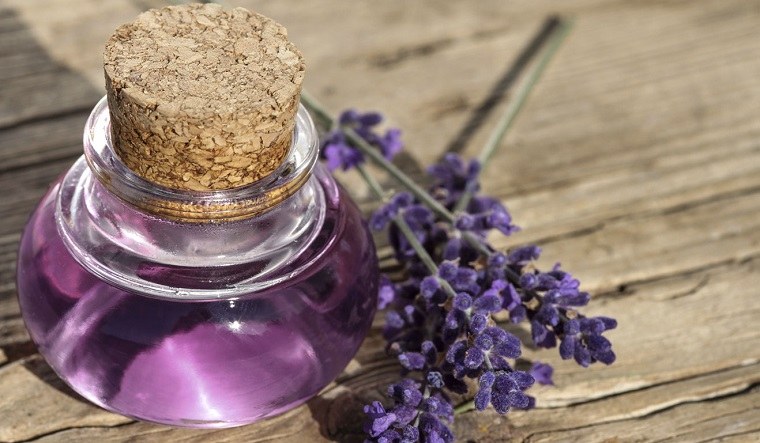
It’s because of its lovely fragrance, which comes from the essential oils found in the plant’s leaves. It’s even thought that lavender oil hinders the ability to smell! This plant is very drought-tolerant once established and only needs full sun and good drainage. And while it can withstand many climates, it thrives in warmer areas.
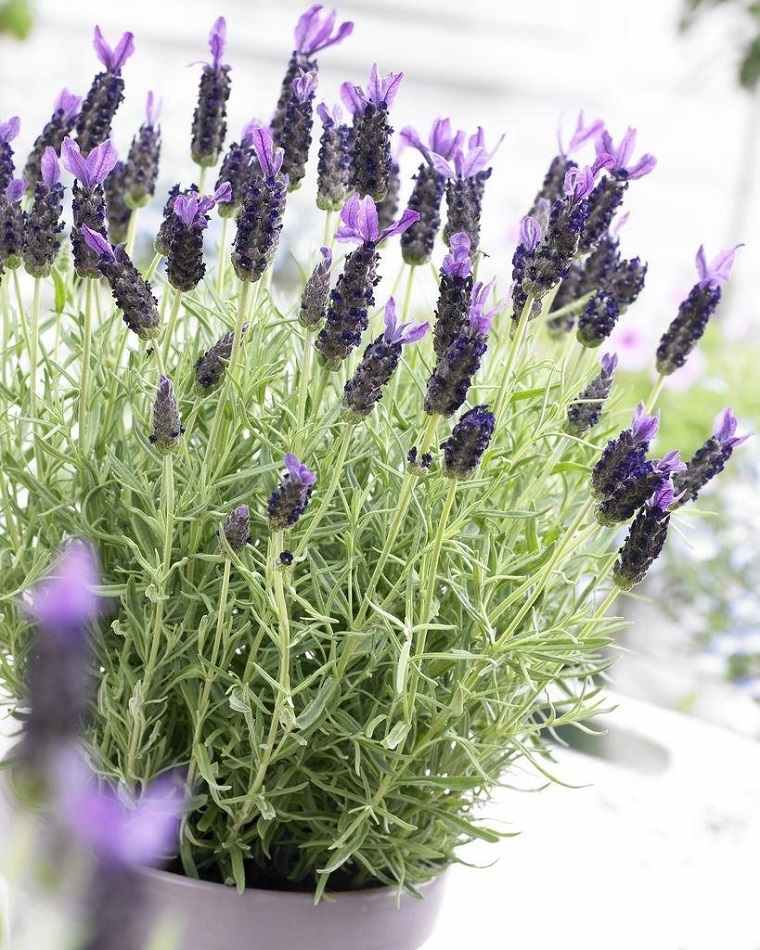
Basil - Who doesn’t like adorning their backyard tables with pots of basil. Basil is not only easy to grow, but it also has a strong aroma that mosquitoes dislike. You can even use the basil leaves to make a natural mosquito repellent spray. Basil prefers full sun and well-drained soil. It’s a versatile herb that can be used in various dishes and also keeps mosquitoes away.
Basil is a wonderful culinary herb and a mosquito deterrent. There are several different types of basil available. The pungent smell emitted by basil leaves is what keeps pests at bay.
And since all types of basil work to keep flies and mosquitoes away, feel free to explore and find the right types of basil to grow in your garden. This herb likes to stay moist, needs good drainage, and enjoys plenty of sun. You can plant basil in containers or in the garden, alone or with other flowers, as long as both plants meet the same requirements.
Mosquitoes will stay away from any outdoor party where you are burning incense. For starters, mosquitoes are not big fans of smoke and they hate aromatic smoke even more. The most effective incense sticks contain a variety of ingredients including lemon eucalyptus incense and even the smell of cloves. Look for 100% natural incense products. An alternative to save money is to make your own incense with mosquito-repellent herbs and spices.
Incense sticks are a natural mosquito repellent.
Who doesn’t love coffee and doesn’t have used coffee grounds? To prevent mosquitoes from multiplying, spread used coffee grounds in areas with water. Mosquito eggs are attracted to the surface of the water and deprived of oxygen by the coffee grounds, so they won’t survive!
Pine wood.
If you have a fire pit or bonfire, burn only pine wood when you want to enjoy outdoor fire. This wood is highly aromatic and will keep mosquitoes away from your outdoor spaces and home.
Use a fan.
When you have an outdoor gathering in the summer, bring out a couple of fans on your patio or porch. This not only keeps your guests cool and comfortable, but also destroys mosquitoes.
Create a habitat for birds.
Birds love mosquitoes, many bird species, including swallows and some migratory songbirds, devour adult mosquitoes and also eat mosquito larvae. To invite these birds into your garden, hang a variety of bird feeders and create an environment where birds feel welcome.
How to be less desirable to mosquitoes.
Swimming, hiking, biking… mosquitoes always find a way to find you when you’re having fun. To make yourself less desirable, try some of these homemade tactics.
Use fewer beauty products when outdoors.
Mosquitoes are fans of most lotions, hairsprays, perfumes, and even deodorant. If you use lotions, etc., try to use ones that have a strong scent of lavender, basil, rosemary, or even eucalyptus.
Eat lots of garlic.
If you consume a good amount of garlic before going out, you might get lucky. Garlic breath can’t do anything to improve your attractiveness to mosquitoes.Relaciones personales pueden ser maravillosas, pero a veces pueden ser arruinadas por el molesto olor del dióxido de carbono que exhalamos. ¡Pero no te preocupes! Tenemos una solución natural y deliciosa para ti: ¡el ajo! Sí, has oído bien, comer ajo puede ayudarte a repeler a esos molestos mosquitos.
Además de ser un ingrediente delicioso en muchas recetas, el ajo también tiene propiedades repelentes de insectos. Cuando lo consumes, el olor que emana de tu cuerpo enmascara el olor del dióxido de carbono que atrae a los mosquitos. ¡Es como tener un escudo invisible contra esos pequeños chupasangres!
Pero eso no es todo, el ajo también emite compuestos de azufre a través de la piel, lo cual hace que los mosquitos te encuentren menos deseable. Así que no solo estarás protegido por el olor del ajo, sino que también tendrás una barrera química adicional para mantener a raya a esos molestos insectos.
Entonces, la próxima vez que estés disfrutando de una comida deliciosa con ajo, recuerda que no solo estás satisfaciendo tu paladar, ¡sino que también estás manteniendo a los mosquitos alejados! Y si necesitas más motivación, solo piensa en todas las relaciones personales que podrás disfrutar sin tener que lidiar con las picaduras de mosquitos. ¡Así que come ajo y mantén a esos mosquitos a raya!






